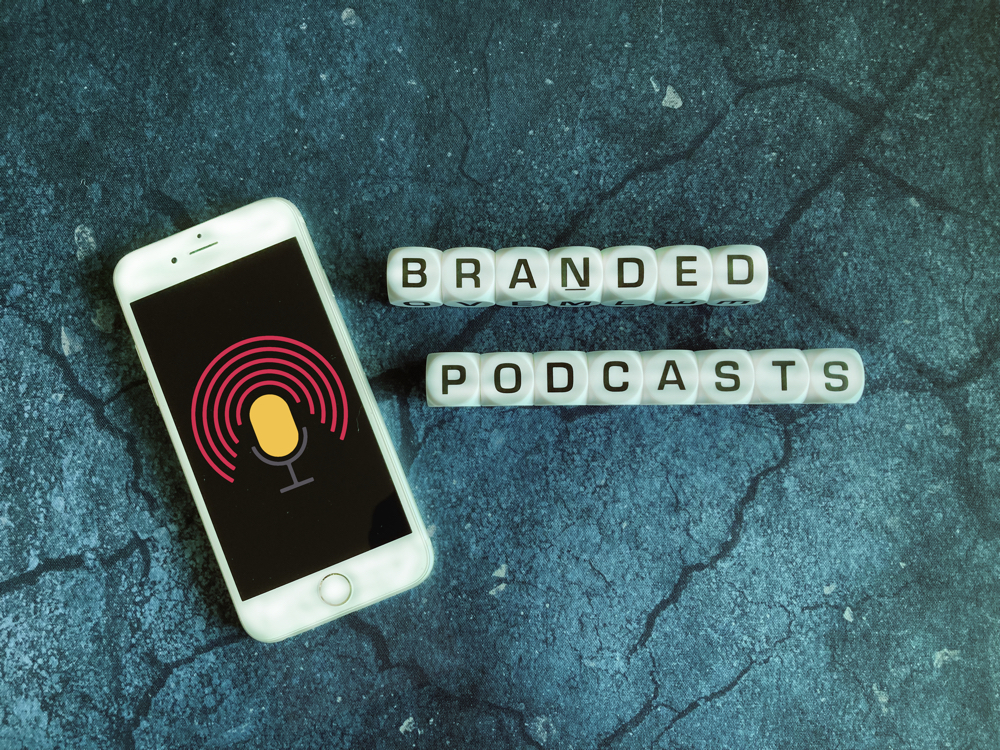What’s the point of a podcast?
The answer to this intentionally vague question depends on who is answering. A hobbyist podcaster might be making their show just to get their voice out there (for better or worse), or to have some fun with their friends and maybe make some coffee money on the side. Podcast networks and the podcast divisions of media companies see them as a way to generate revenue through advertising sales, and brands are increasingly using podcasts to improve consumer awareness and positive perceptions towards them and their products.
But these are all reasons for making a podcast.
Why listen to one?
Luckily, we have plenty of insight into this – The Canadian Podcast Listener study finds the top reasons for listening to podcasts as ‘being entertained,’ ‘hearing interesting stories,’ and ‘just learning something new.’ The results of similar studies conducted in other markets align with those findings.
Do you know what I have never seen stated as a reason? “To improve my awareness and positive perceptions towards a brand.”
That’s not to say that there aren’t branded podcasts that listeners engage with because they already love the brand (Inside Trader Joe’s and Bring Back Bronco being great examples) but in most cases branded podcasts aren’t a ‘build it and they will come’ situation.
Listeners don’t care about your corporate objectives for creating a podcast – you need to give them what they want out of a podcast if you want them to listen, and that means making it first and foremost about their needs, not yours.
Successful branded podcasts follow the same rule as all other meaningful marketing endeavors – they’re created with the customer in mind. Or rather, with the value addition to the customer in mind.
At Signal Hill Insights we have conducted dozens of Brand Lift studies for branded podcasts, as well as studies among a base recruited from existing listeners of a given show. A few trends have emerged over the years:
Firstly and unsurprisingly: there is a positive correlation between high appeal scores for a podcast, and a listener saying they would be likely to listen again. Make a good podcast, get repeat listening – makes sense.
Less intuitively though, higher brand recall (the percentage of listeners who correctly identified the brand responsible for the podcast) has a moderate negative correlation with both likelihood to listen again, and with favorability lift for the presenting brand.
What does this mean for your branded podcast?
1. Content with long-term engagement in mind is more likely to pay off
A heavy ‘brand touch’ on the podcast can be detrimental to your chances of repeat listening. Mentioning your brand by name over and over will make sure that listeners know who brought them the podcast, but may also give it the sheen of an infomercial (as cautioned by Pacific Content’s Steve Pratt) and they probably won’t be listening to a second episode.
A branded podcast is both a chance and commitment to build a longer lasting brand connection. Our past work with listener studies shows that you want the long-term engaged listener – they have a higher brand affinity for the brand than a matching group of control listeners.
If they keep coming back, you get a chance to build a positive association with the podcast, which will gradually rub off on the brand.
2. More recall doesn’t mean more Favorability
The really interesting part to me is the negative correlation between recall and favorability lift. This suggests that even though a listener may not be able to name the company that brought them the podcast unaided, when they are asked about their favorability towards various brands later in the survey, the presenting brand still saw the benefits of positive association with the podcast. This subconscious shifting of opinions is what will lead to real-world impact when those listeners are in the market for your product or service.
An example comes to mind where we were testing an internally-produced podcast by a well-known brand. Production quality was high, the guests were eloquent, and the stories were genuinely interesting, but they all revolved around the brand’s bona fides on being a good corporate citizen. Listeners had no trouble naming the brand who made the podcast, but they also felt like they were being sold to. Naturally, this reduced the likelihood to listen again and favorability lift; they were some of the lowest we’d seen.
Put yourself in the listeners’ shoes
Branded podcasts are a powerful tool because unlike traditional ads that are an interruption to the content, your brand is part of the content they are choosing to engage with, but that engagement starts with them choosing to listen. Give your listeners some credit – if you wouldn’t sit down to listen to a 30-minute advertisement, there’s no reason to think they will either.
If you’d like to know more about what makes a successful branded podcast, you should visit the Pacific Content site here. Their weekly blogs going back over the past several years cover all aspects—including the marketing—of branded podcasts or, as they more elegantly call them, “original podcasts by brands.”
And if you’d like to know more about our brand lift studies, check out Brand Lift Studies page at https://signalhillinsights.com/research/brand-lift-study/.
